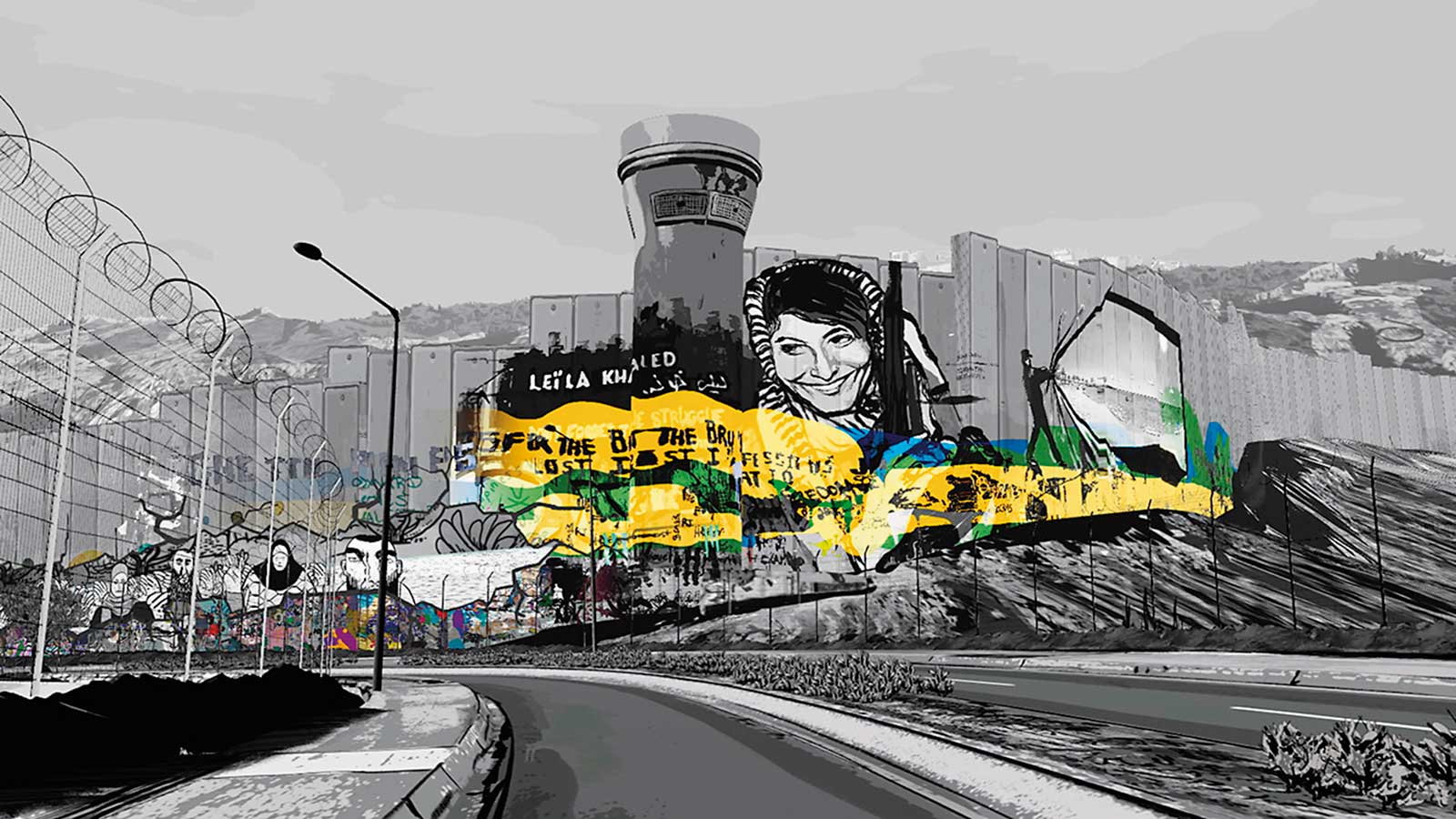In the cold Copenhagen spring, one event allowed me to seek refuge in the (relatively) warm cinema halls of the capital. CPH:DOX is an annual documentary film festival featuring new, challenging documentaries from all around the world. As a full-time student, I didn’t have the time to go to as many screenings as I would have liked to, but I did manage to cover a good bandwidth from “what the hell” over “yeah nice idea” to “oh my God I am forever changed”. Here’s what I saw.
[POLITICS]
Wall
It’s very interesting to see a movie that seems like a good idea, but eventually fails in executing that idea well. The wall referred to in the title is the one between Israel and Palestine. In the film, which is a mixture of computer and hand-drawn animation, U.K. author David Hare tells his version of the conflict between the two countries. Visually, I would consider this film a masterpiece – or ground-breaking at least. It has a very unique style influenced by early 2000s computer games, as well as films like Waltz With Bashir. However, from the get-go, I felt that the film was talking down to me, as well as both the people of Israel and Palestine. Hare’s narration gives the impression that he thinks he’s got it all figured out and he wants to tell you all about it. Not that he has a solution. But it’s the way he speaks – like a self-indulgent high-school history teacher. At the same time, the film doesn’t really go into the depths of the topic at all. It doesn’t give you any new insights, doesn’t inspire and well, there is only one female speaking role. Nice try.
Laila at the Bridge
Apparently, 90% of the world’s heroin comes from the Afghan opium production and the country’s addiction rate is among the highest in the world too. I’ve always been interested in Afghanistan and its culture, but for a long time I’ve been way too fatigued from the war stories to actively take an interest. (Thank you, first world privilege). But then, this movie came along. It is by far the best film I’ve seen at CPH:DOX this year. I would go as far as considering it one of my favorite documentaries of all time already. It’s just such a humbling depiction of selflessness that even just thinking about it makes me want to cry.
And all of that thanks to Laila. She is one of the most amazing women I’ve ever seen. Basically, she ventures into the dark drug abyss under a big bridge in Kabul, where people come to use. She talks to the addicts there, tries to help them and convinces some of them to join her rehabilitation centre, which she runs with her older brother who is a clean addict. They receive little to no funding from the rather corrupt government, yet they never seem to lose hope. Laila’s children live in Iran with her ex-husband, since men automatically get custody. In one scene, Laila tries to get funding from a minister, and he tells her to get her personal situation under control before trying to help addicts. If she can’t be a good mother, she can’t be good at anything else. Laila is furious and tells him to go to hell – the same reaction she has to the people at the bridge, who use addict-watching as a means to pass the time. “No one here is tougher than me” she yells at them. And my God she is right.

Image courtesy of CPH:DOX


